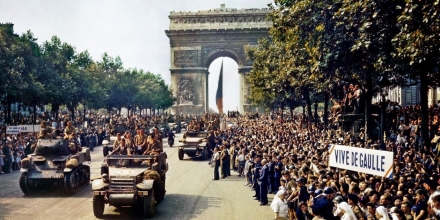Heroes and villains: The effects of combat leadership on collaboration in war-time France

Event details
ACDE Seminar
Date & time
Venue
Speaker
Contacts
How does loyalty to a leader shape political preferences and influence political behavior? We show how combat exposure during World War I under General Pétain — who would become Chief of State of Vichy France from 1940 to 1944 — led people to support fascist political parties, to conduct the repression of Jews, resistants and forced laborers, and to collaborate with the Nazi occupation. A dataset on nearly 100,000 World War II collaborators is used to show that municipalities that raised regiments that fought the Battle of Verdun under Pétain in 1916 had 30% more collaborators during WWII than those that fought the same battle under a different general. Rotation to military service at Verdun under Pétain was purposefully exogenous. Yet, in those municipalities, more people joined collaborationist paramilitary groups, militated in collaborationist political organizations, or directly collaborated with the Nazi regime. This also translated into a durable Left-Right swing in post-War France.
Please email the seminar organiser for the Zoom link or to subscribe to the ACDE Seminar list.
Updated: 2 September 2024/Responsible Officer: Crawford Engagement/Page Contact: CAP Web Team






